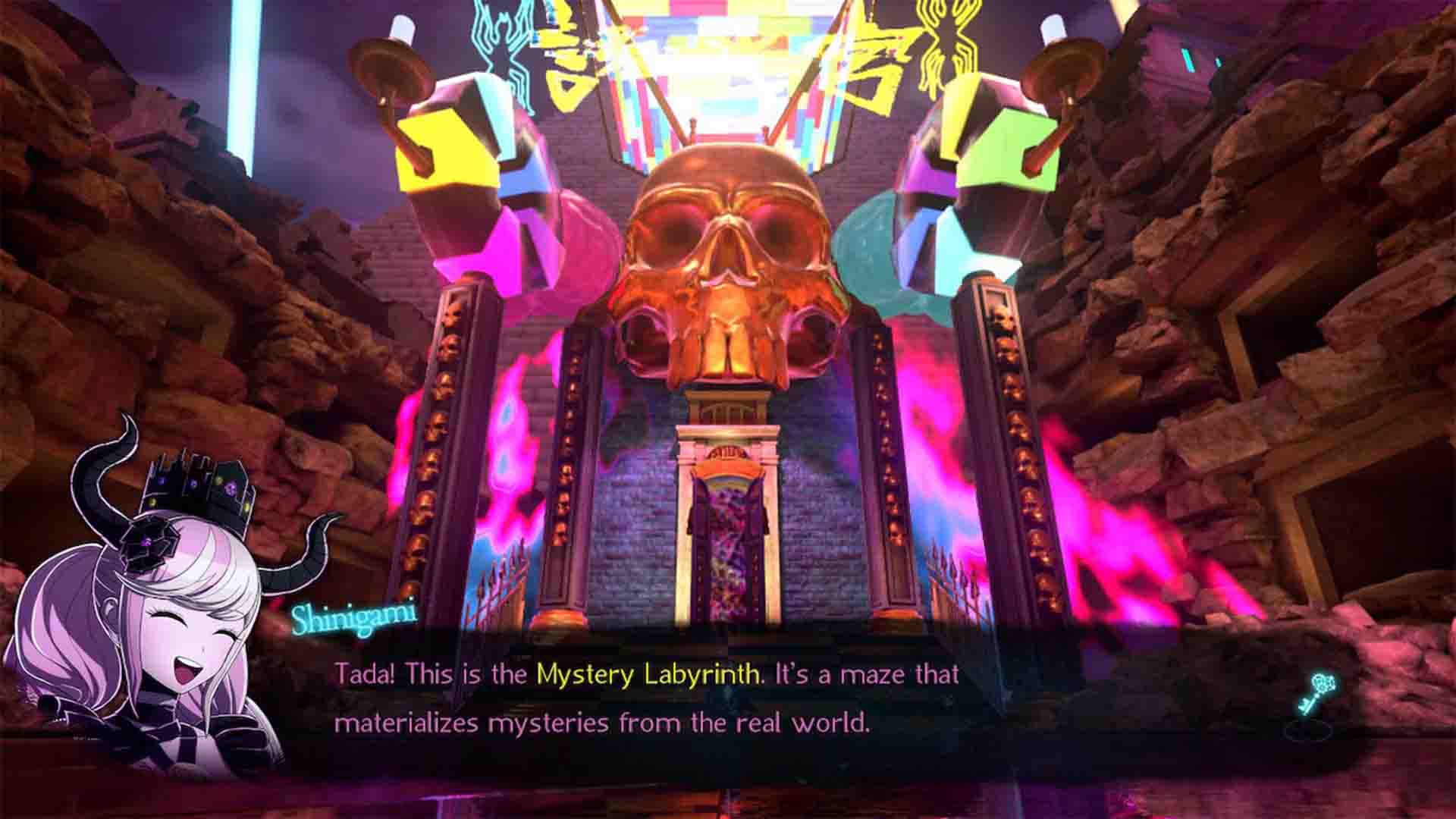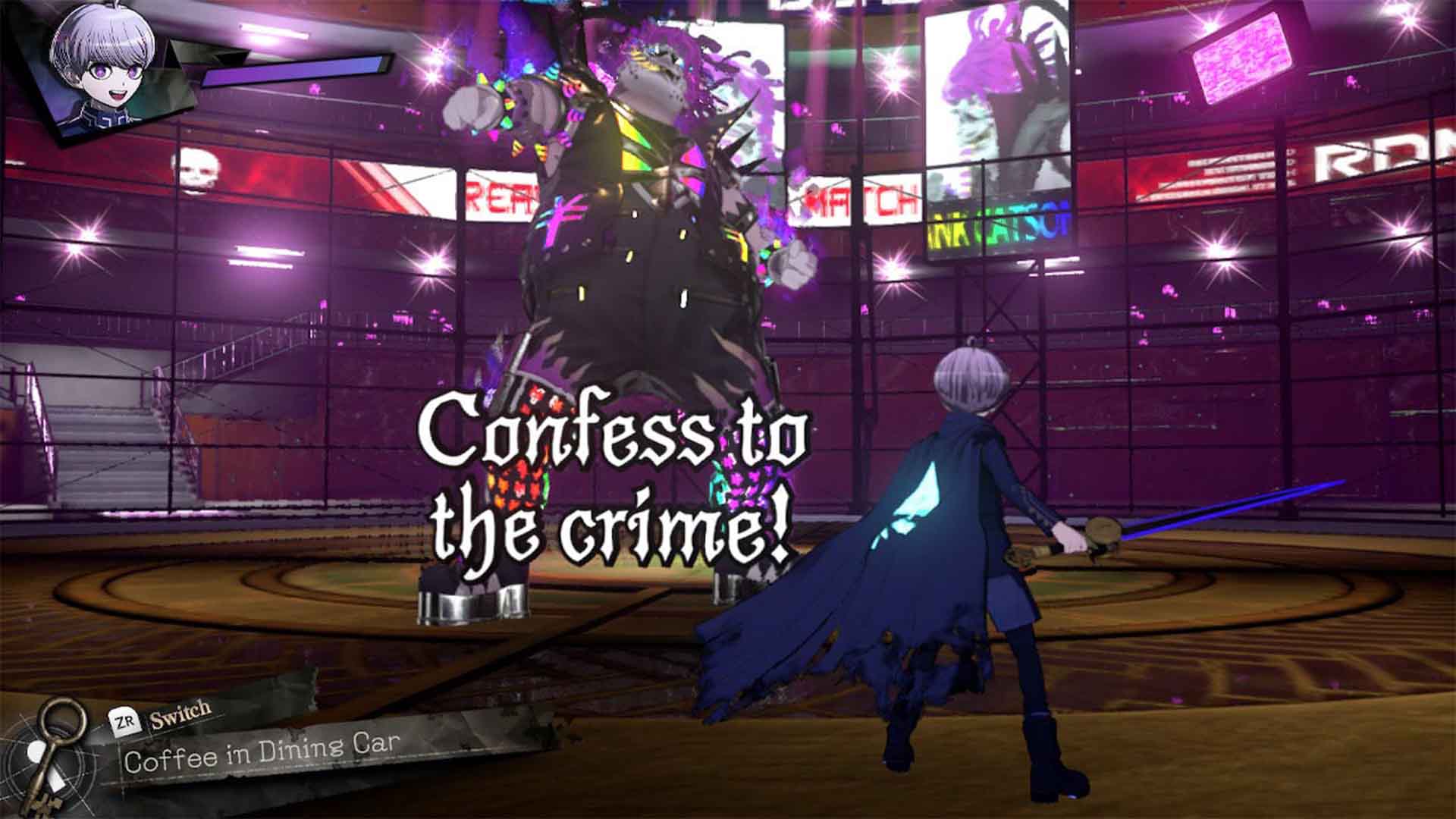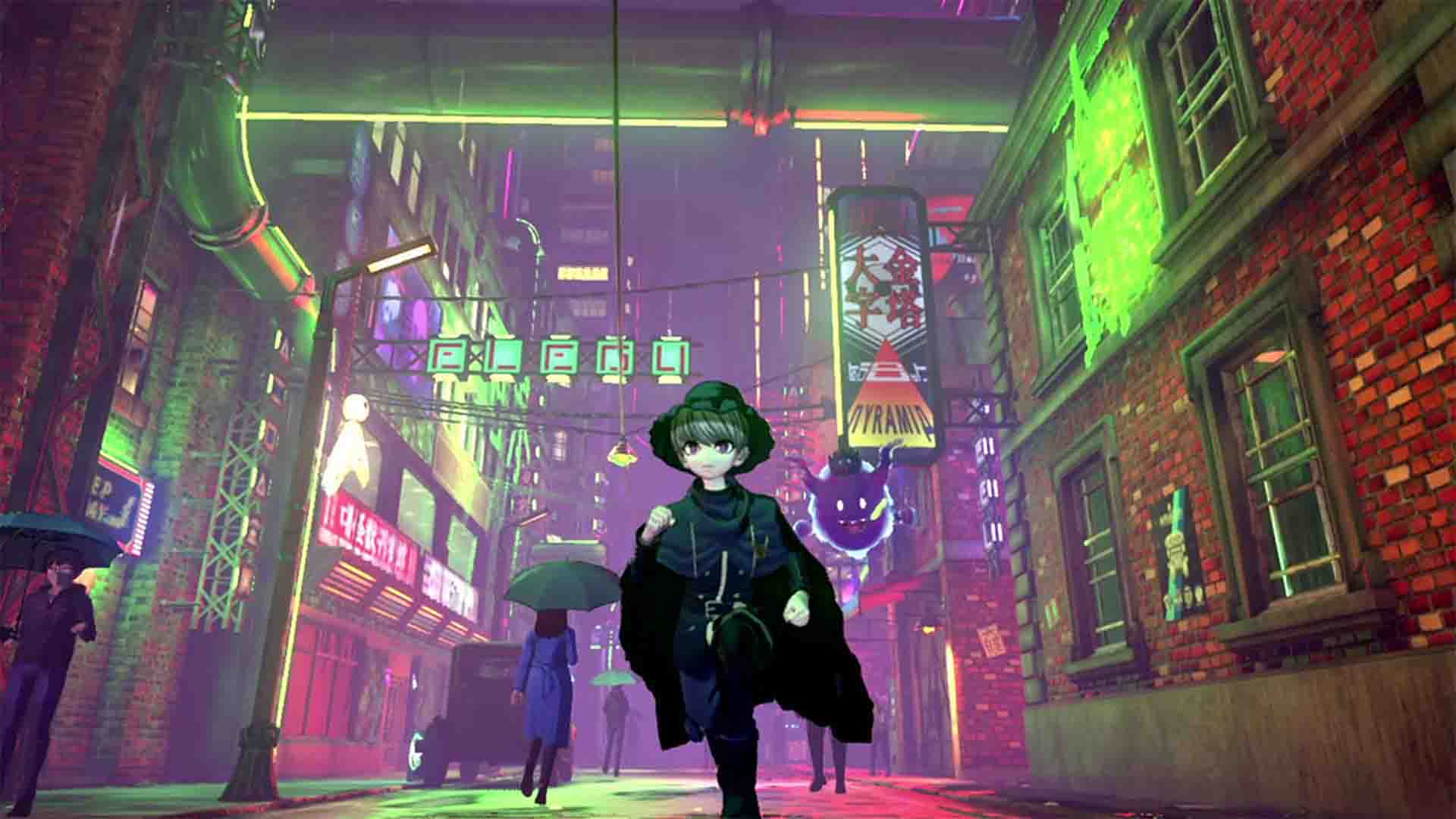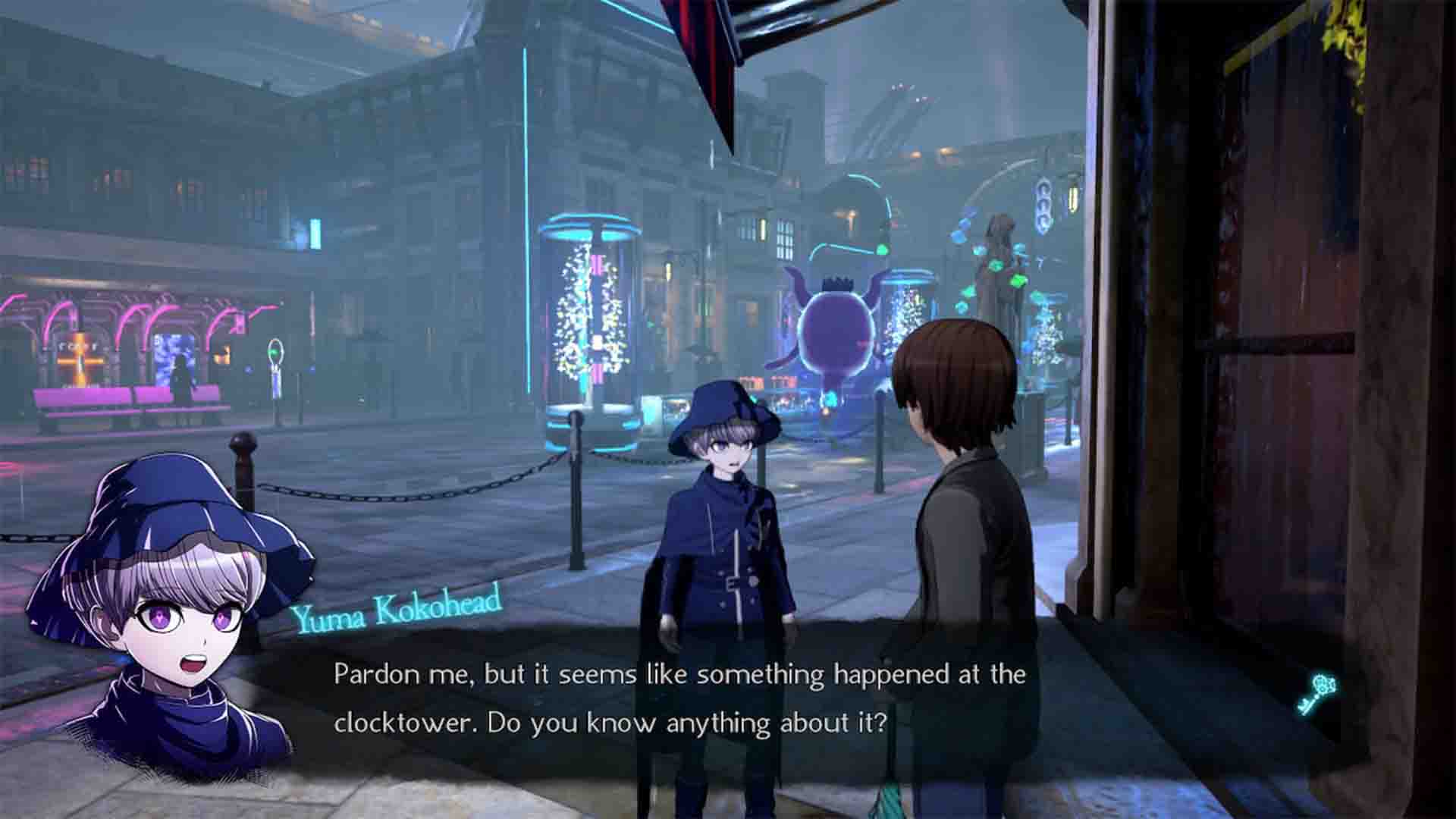Master Detective Archives: Rain Code review
Knowing the pedigree behind Master Detective Archives: Rain Code, it’s no surprise to say that it’s chock-full of unique ideas, dark storylines, and humour that you either are there for, or aren’t. The Danganronpa series is beloved for a reason, but Rain Code rarely hits the highs of its spiritual forebear, for a variety of reasons. It’s by no means a bad game, but it’s also hugely complicated and uneven.
Playing as Yuma, you are an amnesiac would-be detective in the World Detective Organisation (or WDO). You’ve made a pact with a Death God called Shinigami, who appears as a Luigi’s Mansion-like purple ghost in the real world. You can’t remember anything before your deal, but Shinigami has given you the power of coalescence, meaning in a world where the WDO members have unique individual abilities, you can share them. Oh and you can also enter a Mystery Labyrinth dungeon which helps you solve each case, whereby Shinigami turns into a female who constantly makes sexual references, and even refers to her own jiggle physics. Yeah, this is that kind of game.

Rain Code plays out across multiple segments during each chapter. First of all there will be some exposition and time spent with your fellow WDO agents, then you’ll end up embroiled in an investigation to solve a mystery. This takes place in an open world of sorts, in a place called Kanai Ward. Here there is no traditional enforcement, and instead the megacorporation runs rule with an iron fist. There are slums, posh areas, and it’s all as you’d expect. The Amaterasu corporation opposes the WDO and is trying everything to stop the mystery of Kanai Ward being solved, one case at a time.
Exploring the case will eventually lead to you entering the Mystery Labyrinth, and it’s here the game turns into more of an adventure. There are mini-games galore, including the often fun Reasoning Deathmatch. During this event, the person trying to hide the truth will fire accusations and rebuttals back at you, and you have to find the right solution key (gained through your prior investigation sections) to fire back at them. They will shoot red herrings at you, and it’s your job to get the right key for the right enquiry, over multiple stages, eventually forcing an enquiry.

During the dungeon you have a stamina bar that can be depleted if you get things wrong, though it’s worth noting it’s easily upgradable and you won’t get enough wrong to really trouble yourself until the later stages. The RPG elements come into play as everything you investigate count towards your overall level, with each acquired one giving you a point to put into a skill tree that can upgrade your stamina, or alter the mini-games.
The trouble is, some of the upgrades seem like they do the opposite of what you’d want. There’s a mini-game where you have to shoot swords into letters on a barrel to solve a missing word and unveil a bikini-clad Shinigami, and you can slow the turning barrel down, which makes it harder to solve quickly. You can remove some of the red herrings from the Deathmatch scenes, but there are still enough that you don’t always know exactly what question it is the game wants you to solve.

And therein lies one of the major issues at the heart of Rain Code: logic. You are at the behest of the minds behind the title, in that you might come up with the solution, or guess the culprit early on, but it won’t be for another five hours that you are allowed to solve it, and only in the way the developer intended. The narrative might go to great pains to explain (as it does during an early chapter) that a vent is only big enough to get a finger in, then later on explain a case by saying a nail was hammered on through that very vent. It’s fine to suspend your disbelief for an otherworldly adventure like this, but it’s important that the person weaving the narrative follows the logic that they themselves put down.
But that isn’t the biggest issue the game has. The pacing is some of the worst I’ve ever seen in a modern title. After spending 3-5 hours adventuring, exploring, deducing, and going through the labyrinth, you have to complete a “Deduction Denouement”. Here, you’re presented with a book that has gaps in it, and it’s the final mini-game in each chapter. You’ve already solved the case (as that’s what the entire labyrinth is for), but now you have to piece it together again, to complete proceedings.

As if that weren’t enough of a waste of your time, after doing so Rain Code will show you a lengthy cut-scene that wraps up the entire chapter again, which actually feels insulting. Having solved the case not once, but twice (and assuming you didn’t guess the culprit earlier) you have to sit through a scene showing you what you just deduced, again. I kid you not, after spending nearly five hours in a chapter, the scene I got was seven minutes long. It wasn’t alright in Danganronpa V3, and it isn’t alright here, and I just can’t help but feel like a heavy edit would have made this all a better game.
There is merit in Rain Code, however. It’s unique and interesting, offering a dark world to explore and some strange humour that, while on the nose, does tickle the funny bones. Almost everyone has a name like it’s from The Mighty Boosh; we’re talking Viva Twilight, Pucci Lavmin, Zilch Alexander, Halara Nightmare, and more. It’s really well voiced throughout, as well, and Kanai Ward is one of the stars of the show. The neon lit location is always raining, and it has a beauty to it that really does stand out. The camera is pulled in close to Yuma, creating a claustrophobic city that feels alive.

Neither a visual novel nor a full-on dungeon crawling role playing game, Master Detective Archives: Rain Code struggles to find a rhythm, with some of the worst pacing issues I’ve seen in a game. Requiring you to sit for sessions upwards of four to five hours is asking too much, but not doing so means you are going to forget key minutia of a case you’re investigating, and it all adds up to feel like it doesn’t respect your time in any way.
Were this a visual novel, I’d have no issue recommending it, but the expansion into dungeons, investigations, and more, hurts the game due to how long everything takes. It may feel like I’m labouring the point, but I cannot stress how much time every single part of the gamer takes to get through. While it has a vast amount of ideas that work individually, Rain Code rather feels like a missed opportunity that doesn’t quite come together right.





